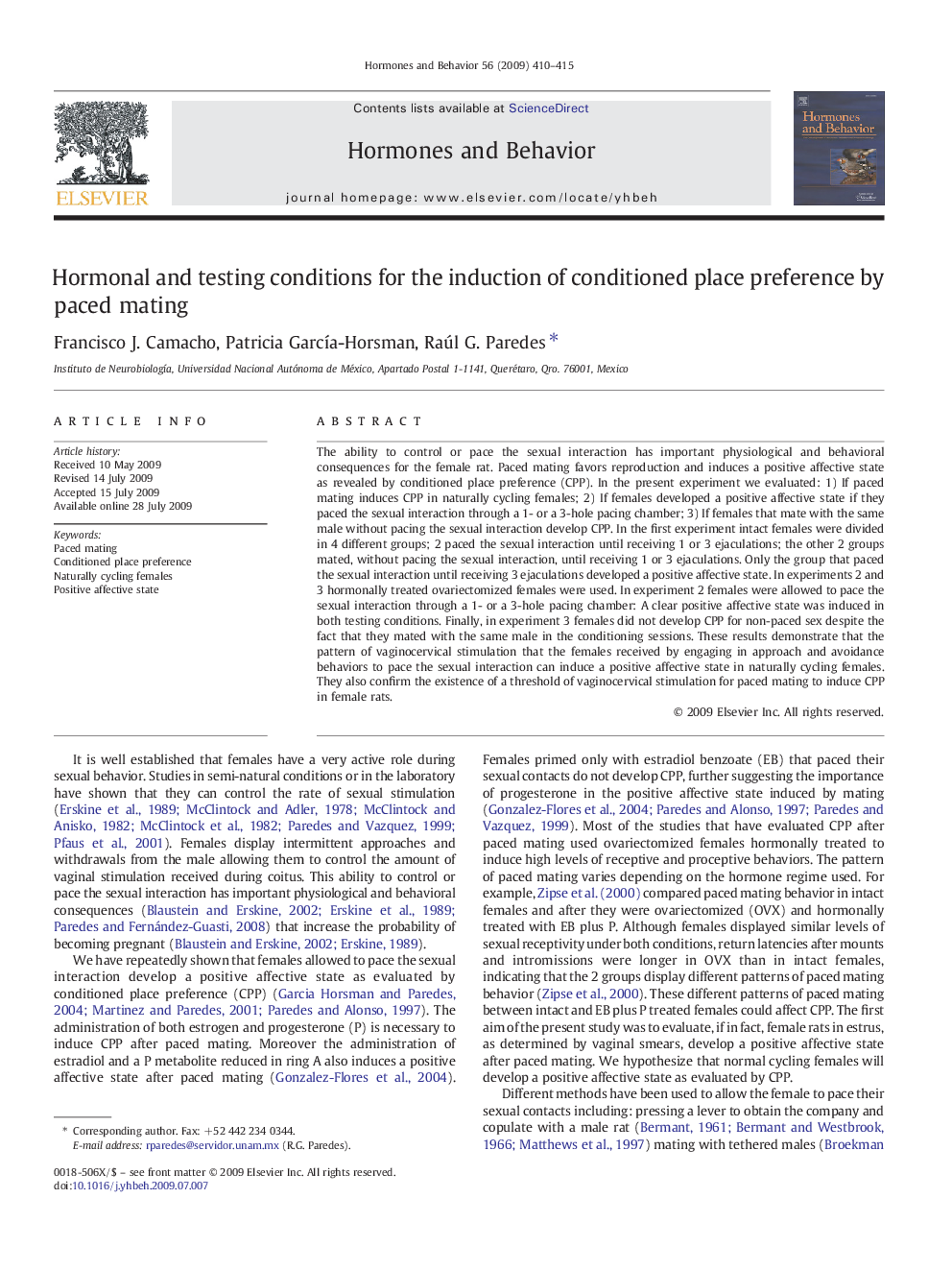| Article ID | Journal | Published Year | Pages | File Type |
|---|---|---|---|---|
| 10300717 | Hormones and Behavior | 2009 | 6 Pages |
Abstract
The ability to control or pace the sexual interaction has important physiological and behavioral consequences for the female rat. Paced mating favors reproduction and induces a positive affective state as revealed by conditioned place preference (CPP). In the present experiment we evaluated: 1) If paced mating induces CPP in naturally cycling females; 2) If females developed a positive affective state if they paced the sexual interaction through a 1- or a 3-hole pacing chamber; 3) If females that mate with the same male without pacing the sexual interaction develop CPP. In the first experiment intact females were divided in 4 different groups; 2 paced the sexual interaction until receiving 1 or 3 ejaculations; the other 2 groups mated, without pacing the sexual interaction, until receiving 1 or 3 ejaculations. Only the group that paced the sexual interaction until receiving 3 ejaculations developed a positive affective state. In experiments 2 and 3 hormonally treated ovariectomized females were used. In experiment 2 females were allowed to pace the sexual interaction through a 1- or a 3-hole pacing chamber: A clear positive affective state was induced in both testing conditions. Finally, in experiment 3 females did not develop CPP for non-paced sex despite the fact that they mated with the same male in the conditioning sessions. These results demonstrate that the pattern of vaginocervical stimulation that the females received by engaging in approach and avoidance behaviors to pace the sexual interaction can induce a positive affective state in naturally cycling females. They also confirm the existence of a threshold of vaginocervical stimulation for paced mating to induce CPP in female rats.
Related Topics
Life Sciences
Biochemistry, Genetics and Molecular Biology
Endocrinology
Authors
Francisco J. Camacho, Patricia GarcÃa-Horsman, Raúl G. Paredes,
